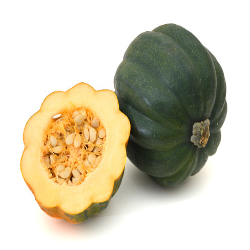Fennel Nutrition facts
Fennel

Delicate, sweet-flavored fennel bulb is one of routinely found vegetable featuring in the Mediterranean cuisine. Its succulent enlarged bulb imparts a unique “anise-like' sweet flavor to the recipes.
Bulb fennel is cultivated for its beautiful, squatted stems in many regions of the southern Europe, especially in Italy. It is also known as Florence fennel, finocchio, and sweet fennel.
Fennel is a member of the Apiaceae (parsley family) and is related to carrots, caraway, anise, cumin, dill, etc. Scientific name: Foeniculum vulgare var. azoricum.
Bulb fennel is a cool-season perennial herb but grown as an annual vegetable crop. Unlike seed fennel, bulb fennel is a small herb reaching just up to 2 feet in height. As the plant grows further, its thick lower leaves overlap in layers to form a swollen, bulb-like structure just above the soil surface. At maturity, its bulb measures about 3-5 inches in width and about 3 inches in length.
As the plant begins to develop the bulb, farmers often pull surrounding soil to create a mound around the stem to obtain long blanched fronds.
Similar Food
-
 Acorn squash 40 Cal
Acorn squash 40 Cal -
 Amaranth greens 23 Cal
Amaranth greens 23 Cal -
 Artichoke 47 Cal
Artichoke 47 Cal -
 Arugula 25 Cal
Arugula 25 Cal -
 Asparagus 20 Cal
Asparagus 20 Cal
Source of Calorie
-
Carbs7.29 g 81%
-
Protein1.24 g 14%
-
Fat0.20 g 5%
How long to burn off 31 Calories?
*Approximate base minutes for a 25-year-old, 65 kg adult at moderate intensity.
| Nutrition Principle | Nutrition Value | Percentage of RDA |
|---|---|---|
| Principle | ||
| Energy | 31 Kcal | 1% |
| Carbohydrates | 7.29 g | 6% |
| Protein | 1.24 g | 2% |
| Total Fat | 0.20 g | 1% |
| Cholesterol | 0 mg | 0% |
| Dietary Fiber | 3.1 g | 8% |
| Vitamins | ||
| Folates | 27 µg | 7% |
| Niacin | 0.640 mg | 4% |
| Pantothenic acid | 0.232 mg | 5% |
| Pyridoxine | 0.047 mg | 4% |
| Riboflavin | 0.032 mg | 2.5% |
| Thiamin | 0.010 mg | 1% |
| Vitamin A | 134 IU | 4.5% |
| Vitamin C | 12 mg | 20% |
| Electrolytes | ||
| Sodium | 52 mg | 3% |
| Potassium | 414 mg | 9% |
| Minerals | ||
| Calcium | 49 mg | 5% |
| Copper | 0.066 mg | 7% |
| Iron | 0.73 mg | 9% |
| Magnesium | 17 mg | 4% |
| Manganese | 0.191 mg | 1% |
| Phosphorus | 50 mg | 9% |
| Selenium | 0.7 µg | 1% |
| Zinc | 0.20 mg | 2% |